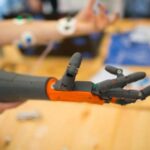An alarming warning has been issued by the FBI regarding the exploitation of plastic surgeries throughout the United States by cybercriminals with the intention of illicitly acquiring patients’ sensitive information. A multi-stage strategy is being utilized by these cybercriminals in order to maximize their illicit profits. They begin by infiltrating the networks of cosmetic surgery offices in order to steal data, including electronic protected health information such as photographs.
They then supplement the pilfered information with social media scouring and open-source data. They conclude their extortion by contacting surgeons and patients and requesting remuneration in return for withholding the publication of the compromised sensitive information. This article illuminates the profoundly intimate and disconcerting ramifications of such assaults, imploring readers to adopt precautionary measures to safeguard their privacy and maintain a state of constant vigilance against cyber perils.
The FBI Warns Plastic Surgeries of Cybercriminal Targeting
The FBI has warned US plastic surgery offices and patients about fraudsters attacking the business. Cybercriminals use intricate techniques to steal patient photos and medical records for extortion. FBI said these crooks use a multi-stage scheme to maximize income and prey on cosmetic surgery consumers.
Contextual Information
The FBI’s advisory underscores the escalating menace of cybercrime within the cosmetic surgery sector. To breach the networks of plastic surgery offices and pilfer sensitive data, including photographs and electronic protected health information (ePHI), criminals are employing sophisticated methods. Following this, extortion is carried out against plastic surgeons and their patients using the compromised data. Greater vigilance and security measures are imperative to defend against these cyber threats, according to the FBI.
A Multi-Stage Cybercriminal Strategy
Cybercriminals are employing a multi-stage strategy to target plastic surgery offices and patients, as detailed by the FBI. Extortion, data enhancement, and data harvesting are all components of this strategy. The criminals’ endeavors to exploit sensitive information and extort money are dependent on each stage.
First Phase: Data Harvesting
Cybercriminals infiltrate the networks of cosmetic surgery offices and steal sensitive data, including photographs and ePHI, during the initial phase. Deceitful individuals frequently employ deceitful strategies, including the use of spoofed email addresses or disguised phone numbers, in order to fool unsuspecting personnel into divulging login credentials or tapping on malicious links. This allows the malevolent actors to illicitly penetrate the networks and acquire significant amounts of data.
Second Phase: Data Enhancement
Criminals improve the pilfered information in stage two in order to increase their leverage over potential victims. In addition to social engineering techniques, they trawl social media accounts and utilize open-source information to augment the stolen data. The criminals can enhance the efficacy of their extortion endeavors and exert greater pressure on their targets by integrating supplementary information with the pilfered data.
Third Phase: Extortion
The third stage consists of the extortion itself. The criminals, equipped with the pilfered and altered data, initiate contact with plastic surgeons and their patients via a range of electronic mail, social media, and text messaging platforms. They demand payment under the guise that the stolen data will be withheld from public disclosure if a ransom is paid. Certain offenders may even begin to divulge the confidential information to acquaintances, relatives, or coworkers in an effort to place additional strain on the victims.
Implications for Patients undergoing plastic surgery
The ramifications of these assaults on patients undergoing plastic surgery are substantial. The act of consulting a cosmetic surgeon is an extremely private matter, and the notion that malicious hackers could gain access to potentially sensitive photographs and personal information is extremely disquieting. Patients feel even more vulnerable and violated by the fact that they are privy to the possibility that these offenders are deliberately disclosing this information to others.
Notable Instances of Data Breaches in Plastic Surgery
An exemplary instance that underscores the gravity and frequency of data intrusions in the field of cosmetic surgery pertained to the BlackCat ransomware group. They claimed accountability for a data intrusion that occurred earlier this year at a Beverly Hills plastic surgery clinic frequented by celebrities. This incident underscores the criticality of proactively recognizing, addressing, and reducing the cybersecurity vulnerabilities encountered by offices specializing in cosmetic surgery.
Measures Suggested by the FBI
As the threat posed by cybercriminals who target plastic surgery offices and patients continues to grow, the FBI has issued a number of recommendations for increased security.
Enhanced Privacy Protections on Social Media
Patients undergoing plastic surgery ought to allocate some time to assess and modify their social media privacy configurations. Private profiles should be utilized to limit access to personal information. Patients should also restrict their social network friend connections to people they personally know in order to reduce the likelihood of unauthorized access.
(2) Two-Factor Authentication Implementation
Two-factor authentication boosts online account security. This security precaution prevents malicious hackers from compromising accounts, protecting valuable data.
Employing Unique and Robust Passwords
It is critical to safeguard online accounts by implementing robust and distinct passwords in order to avert unauthorized access. Password managers are recommended for patients as they can assist with the generation and retention of complex passwords. Further, account security is enhanced by enabling two-factor authentication whenever it is feasible to do so.
Monitoring Credit Reports and Bank Accounts
Patients undergoing plastic surgery should monitor their credit reports and bank accounts on a routine basis for any suspicious activity. This can facilitate the early detection of potential fraudulent activities, enabling prompt intervention and resolution. To prevent unauthorized access, patients may also wish to consider placing a fraud alert or security hold on their credit reports.
Disclosure of Suspicious or Fraudulent Activities
The FBI advises plastic surgery patients to report breaches or suspicious activity to the Internet Crime Complaint Center (IC3). Incident reports can help law enforcement catch hackers and stop subsequent assaults.
Patients and cosmetic surgery offices must, in conclusion, maintain a proactive and vigilant stance in safeguarding against cyber threats. By adhering to the prescribed security protocols and exercising prudence when engaging in online activities, the plastic surgery sector can effectively reduce the vulnerabilities presented by cybercriminals and protect the confidential data of patients. In order to safeguard the integrity and confidentiality of the plastic surgery industry and combat these emerging threats, it is critical that the FBI, patients, and practices collaborate.



